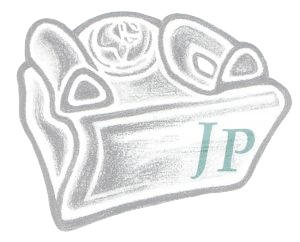The other disease which my tongue is called to cure is the most difficult… And what is the disease? The festivals of the pitiful and miserable Jews which are soon approaching.
— Saint John Chrysostom (349-407)
The worldwide Church, individually and corporately, needs to consider apologizing to the Jewish people as a result of anti-Semitic remarks by the Early Church Fathers as evidenced in the fourth century works of Saint John Chrysostom called Λόγοι Κατὰ Ἰουδαίων (Discourse Against the Jews).[1] This article discusses the life of John Chrysostom and the style and themes of Λόγοι Κατὰ Ἰουδαίων, which identifies Chrysostom’s teachings as anti-Semitic. They are supported with examples of anti-Semitic remarks from all eight of Chrysostom’s discourses, or sermons. In conclusion, reasons are given as to why the Church needs to apologise for all anti-Semitic remarks, especially those of the Early Church Fathers, based on John Chrysostom’s example.
The early Church father, Saint John Chrysostom (349-407)[2] was known as “the most prominent doctor of the Greek Church and the greatest preacher ever heard in a Christian pulpit.”[3] He was born in Antioch to a Roman father and Christian Greek mother.[4] He studied under Libanius, the distinguished man of letters and professor in the chair of rhetoric at Antioch (314-393).[5] After leaving Libanius, Chrysostom fell under the influence of Meletios, the orthodox bishop of Antioch, and was baptised. In Sozomen’s history of Antioch,[6] he describes Chrysostom as a man “of noble birth and of exemplary life.” He notes that Chrysostom’s wonderful powers of eloquence and persuasion caused his teacher, Libanius the Syrian, to say that Chrysostom, “surpassed all the orators of the age” and that on his deathbed Libanius declared that John would have been his successor had he not converted to Christianity.[7]
Paid Content
Premium Members and Friends of JP must be logged in to access this content: Login
If you do not have a paid subscription, please consider registering as a Premium Member starting at $10/month (paid monthly) or only $5/month (paid annually): Register
One Time Purchase Rather Than Membership
Rather than purchasing a membership subscription, you may purchase access to this single page for $1.99 USD. To purchase access we strongly encourage users to first register for a free account with JP (Register), which will make the process of accessing your purchase much simpler. Once you have registered you may login and purchase access to this page at this link:
- [1] Joannis Chrysostomi, ΙΩΑΝΝΟΥ, ΤΟΥ ΧΡΥΣΟΣΤΟΜΟΥ, ΤΑ ΕΥΡΙΣΚΟΜΕΝΑ ΠΑΝΤΑ (ed. J.-P. Migne; 18 vols; S.P.N.), 1:843-942. ↩
- [2] There are many discrepancies regarding his birth. J. N. D. Kelly says that there are various dates between 344-354 which have been as possible birth dates, but the most suitable to fit all the facts is 349 (J. N. D. Kelly, Golden Mouth. The Story of John Chrysostom, Ascetic, Preacher, Bishop [New York: Cornell University Press, 1995], 4). ↩
- [3] Catholic Encyclopedia, New Advent: St. John Chrysostom, Kevin Knight, 2007, http://www.newadvent.org/cathen/08452b.htm (accessed April 22, 2008). ↩
- [4] J. N. D. Kelly, 4-5. ↩
- [5] J. N. D. Kelly, 6. ↩
- [6] Commenced to be written in 442 and covers 117 years from 323-439. The Ecclesiastical History of Sozomen, comprising a History of the Church, from A.D. 324 to A.D. 440 (trans. M. A. Walford Edward; London: Henry G. Bohn, MDCCCLV). ↩
- [7] M. A. Walford Edward, 362-3. ↩





































































